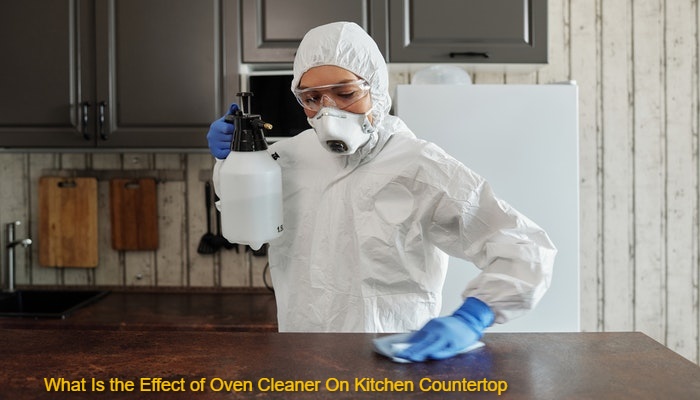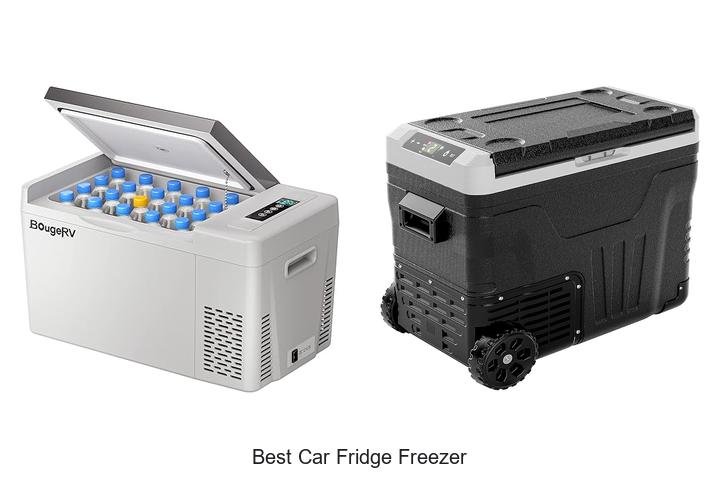The kitchen countertop is arguably the busiest surface in the kitchen. Whether it is made of wood, stone slab, or laminated surface; you will do most of your chopping and food preparation on it. At the end of your cooking episode, the countertop will be full of grime, liquid stains, and oil residue among other leftovers.
Many people would like to leave the space clean once you are through with your chores. It is easy to pick the next available cleaning agent to complete the task. Unfortunately, the nearest is always almost the oven cleaner. Have you stopped to ask yourself what is the effect of oven cleaner on kitchen countertops? I mean, there is a reason why it is called “oven” cleaner.
In this article, we are going to learn about the aftermath of using oven cleaners on kitchen countertops.
What is an Oven Cleaner?
This cleaning agent is meant to clean the oven. Most manufacturers include a myriad of chemical ingredients that make up the agent. Some of the common ingredients include lye, sodium Laureth, acrylic copolymer, isobornyl acetate, etc.
So, why complicate the whole cleaning process with difficult-to-pronounce terms when water and soap is all that you need.
Oven Cleaner Ingredients
The oven has all manner of dirt gotten from foods baked in them. As a result, their cleaners contain strong chemicals to eradicate all stubborn stains. Kitchen countertops are made of different materials and it is not recommended that the chemicals in oven cleaners be put on these surfaces.
The most common harmful chemicals contained in oven cleaners include:
- Turpentine
- Foaming agents
- Butane
- Degreasers
- Monobutyl ether
- Sodium hydroxide (lye)
- Monoethanolamine
- Diethylene Glycol
These chemicals will destroy any kind of kitchen countertop, the reason why it is not advisable to use this agent when cleaning the kitchen countertop. These chemicals not only destroy the countertops but also pose a health risk by causing food poisoning.
Let’s now look at the effect of these chemicals on different types of countertops.
Kitchen tops are made of different materials such as wood, laminate, marble, granite, quartz, tiles, or aluminum and steel. All these react differently to the corrosive chemicals contained in oven cleaner. Most of the oven cleaners in the market have lye. Unfortunately, lye is the most destructive of all the chemicals.
Oven Cleaner on Wooden Countertops
Wood is a porous material, the reason why all countertops made of wood are layered with a finish. This finish is water-resistant and prevents bacteria and other microorganisms from being absorbed.
It is very dangerous to use oven cleaners on wooden kitchen countertops, more so if the countertop has a layer of veneer on the wooden surface. The harsh chemicals in the oven cleaner spray will cause a bubbling reaction. The reaction causes the wood to change into a gummy paste that slowly ruins the wood. This leaves the wood exposed leading to bacteria getting into the food.
A butcher’s block will also be affected the same way by an oven cleaner as it would wood tops.
Oven Cleaner on Tile Countertops
Tile countertops are not common in many homes. It is easy to think that oven cleaners will clean dirty grout in a second. The truth is, it will instead scrap the top finish on the tile and destroy the grout.
Oven Cleaner on Stone Countertops
Sodium hydroxide destroys many stone countertops. Stone countertops are made from natural stones like marble and granite. Natural stones are hard to discolor but it does not mean that they will not. These stones are porous, hence the polyurethane coating. Repeated exposure to lye causes this coating to wear off causing discoloration and spotting.
Countertops made of artificial stones like quartz are easy to discolor if cleaned with oven cleaners. Stone countertops are the toughest of all the kinds of materials used to make countertops and do not get destroyed easily.
Oven Cleaner on Stainless Steel Countertops
These are the commonest countertops found in homes and restaurants. The chemicals in an oven cleaner spray will leave the surface stained from the chemical composition in the agent.
Oven Cleaner on Formica Countertops
This laminate-Esque countertop may be among the toughest surfaces, but it remains at risk of destruction by oven cleaners. Once exposed to the dangerous chemicals mentioned above, this aesthetically appealing countertop would start to fade and wear out its finish.
What You Should Do if You Have Used Oven Cleaner on the Kitchen Countertop
Therefore, you did not know the effect and unfortunately, you have already cleaned your precious, nice, and expensive-looking kitchen countertop with an oven cleaner. No need to worry, there is something you can do to lessen the effect and still somehow restore its nice appearance.
Here is what you can do:
- For a wood countertop, use soapy water to clean the surface then apply special wood oil to regain its color.
- If the countertop is not made of wood (marble, quartz, granite, aluminum, tile, or laminate), clean using the regular kitchen countertop cleaner then polish to regain the shiny finish.
The Safest Way to Clean Kitchen Countertops
To be on the safe side, use natural remedy cleaning techniques, like the use of vinegar and pasta. A natural remedy is always the way to go to avoid and discoloration, corrosion, or staining of any kind of kitchen top you have.
Another easy and safe way of cleaning the kitchen worktops is to use warm water and soap. The soap should not contain harsh chemicals.
Most professionals recommend a sure way of not damaging the kitchen countertop that is the use of special countertop cleaners. These cleaners contain ingredients specified to effectively clean countertops made of different materials.
Conclusion
Now you know, cleaning your kitchen countertop, especially where you prepare and cook your food is not only risky for you but for the surface too. You should be cleaning the surface using cleaning agents that do not contain any strong chemicals.
Similar Post You May Read





Leave a Reply